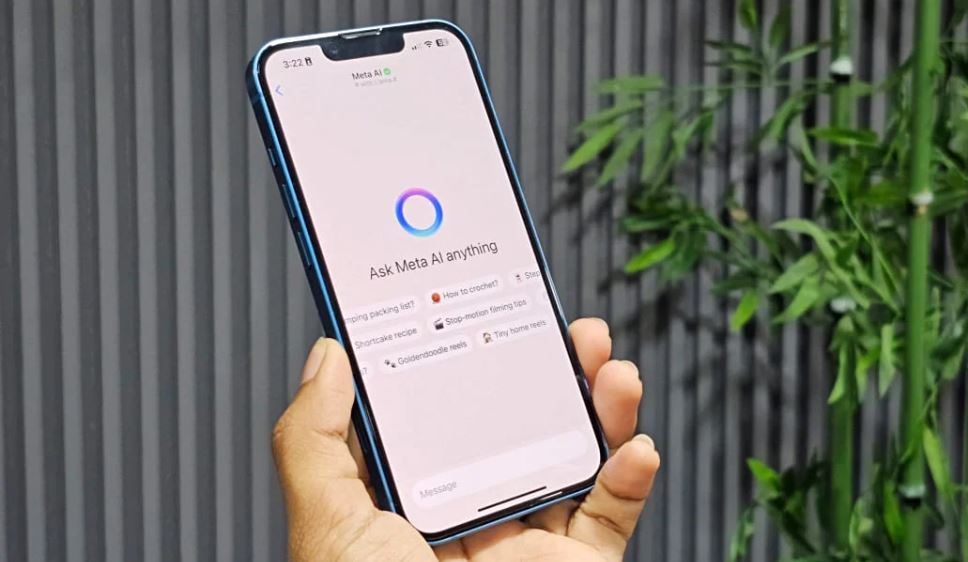Meta launched a standalone AI app on Tuesday, 29 April, at Meta’s LlamaCon event. The app enables users to access Meta AI within an app, much like Google’s Gemini, OpenAI’s ChatGPT, Microsoft Copilot, Perplexity and other AI assistant apps.
Up until now, only Meta-owned social media platforms – Facebook, Instagram, WhatsApp, and Messenger – have integrated Meta AI.
Launched in September 2023, the integrated Meta AI is a virtual assistant that can reason using large language models.
In addition to being accessible through the company’s family of platforms, which includes Facebook, Instagram, WhatsApp, and Messenger, the standalone app comes as Meta seeks to increase the use of the AI assistant.
It also marks the decision by CEO Mark Zuckerberg to challenge Google and OpenAI, two of the company’s main competitors, in order to fortify the company’s position in the cutthroat AI market.
Here are some things you should know about the recently launched standalone Meta AI app.
Meta AI provides personalised responses
Meta’s standalone app offers more personalised responses according to context and other user-specific factors pertaining to the user’s Instagram and Facebook profiles. Currently, the United States and Canada will have access to these personalised responses.
Meta’s CEO Mark Zuckerberg said in a video posted on his Facebook page, “Meta AI is designed to be your personal AI. That means it’s designed around voice conversations.
You open up the app, and you could talk to it about whatever you want. From the news to an issue you are dealing with to just anything you want to learn about.”
Meta AI surpasses one million download on Google Play Store
According to Zuckerberg, the company wants Meta AI to reach the milestone of one billion monthly active users by the end of the year.
However, as of the time of writing this report, Meta AI has surpassed one million downloads and still countinued, and a 4.08-star rating on the Google Play Store.
Available on Play Store, App store and Web
The Meta AI app is available for download on the Google Play Store. Users of iPhones and iPads can download it from the App Store. With features like voice interactions, image generation, and a document editor, it is also available on the web.
Competitive advantage of Meta AI over other AI assistants
In order to stay in competition, the Meta AI app incorporates some features that make it different from other AI assistants. They include:
Personalised responses: Meta is attempting to capitalise on its unique selling point, which sets it apart from firms like OpenAI and Anthropic. Years of data that you’ve probably shared on Facebook or Instagram have given Meta an idea of who you are, what you like, and who you hang out with.
According to the company, the ability of Meta’s AI app to “[draw] on information you’ve already chosen to share on Meta products,” like your profile and the content you interact with, allows it to stand out from other AI assistants. These personalised responses will initially be available in the United States and Canada.
Provision of personal information: You can also provide Meta with additional personal information that it can use to remember you in future interactions with its AI.
For instance, you can inform the AI that you have lactose intolerance, which it may remember before suggesting that you attend a wine and cheese tasting on your next trip.
But, like with any AI product, users should be aware of how Meta may use the data they give to its chatbots. The majority of Meta’s revenue comes from its targeted advertising business, which is powered by its abundance of user data.
Voice conversation: Apart from text, users can communicate with Meta AI with voice notes. The most user-friendly method of communicating with Meta AI is by voice, and the Meta AI app is made to enable you to initiate a conversation with ease, even when you’re on the go or multitasking.
To have voice on by default, enable the Ready to Talk feature in your settings.
Introduction of Discover Feed: A Discover feed is another feature of Meta’s AI app that allows you to share your AI usage with your friends.
In one mock-up image, Meta depicts a person asking the AI to characterise them using three emojis, which they then share with their friends. The feed won’t see a user’s interactions with Meta AI unless they specifically request it.
Some generative AI trends may be amplified by this feed, such as the recent craze for trying to look like Studio Ghibli characters or Barbie dolls.
Integration of Meta AI app with AI glasses: According to the company, the new app will combine with the current companion app and work with Meta’s AI glasses. “You are going to be able to use the app to manage your Meta glasses and other kinds of AI devices that we are going to be building in the future,” Zuckerberg said.
The Meta AI assistant is powered by Llama 4, Meta’s most recent large language model, which is intended to compete with the newest AI models from OpenAI, Google, DeepSeek, and Anthropic thanks to its enhanced reasoning, multilingualism, and efficiency.











